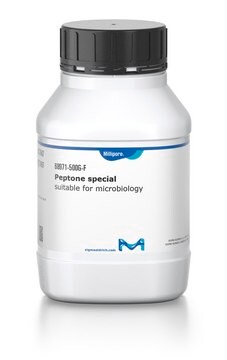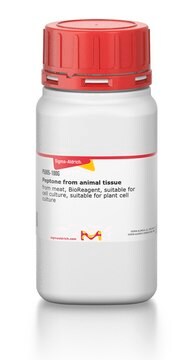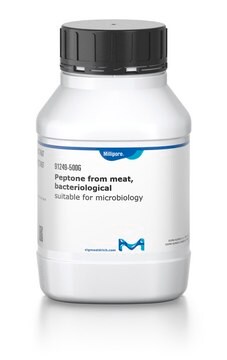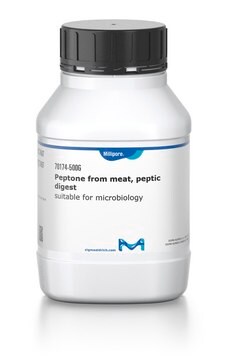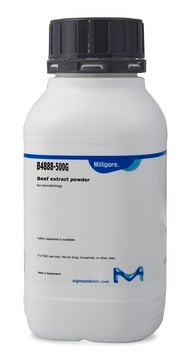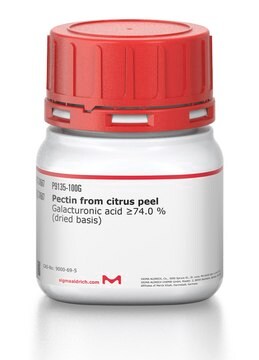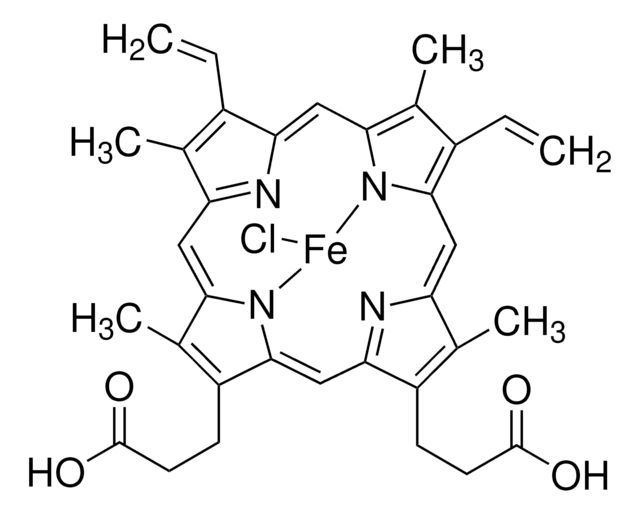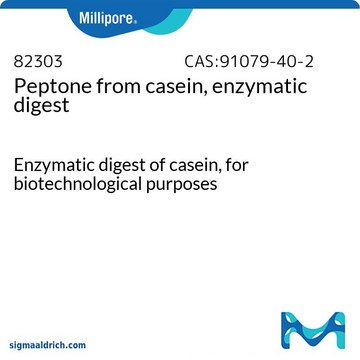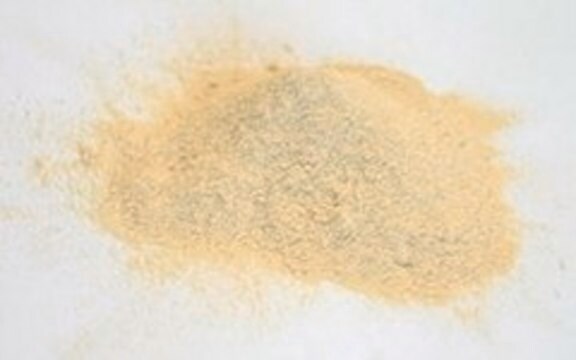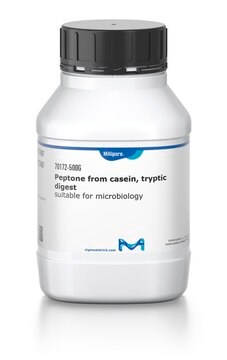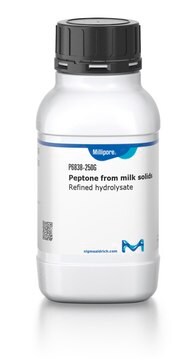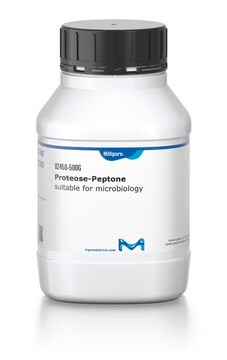77180
Peptone from animal proteins
suitable for microbiology
Synonym(s):
Peptone porcine
Sign Into View Organizational & Contract Pricing
All Photos(1)
About This Item
Recommended Products
biological source
Porcine skeletal muscle
Quality Level
form
powder
composition
total nitrogen (N), ≥10%
packaging
pkg of 100 g
pkg of 500 g
ign. residue
≤22%
loss
≤6% loss on drying
pH
7.0±0.5 (25 °C in H2O)
solubility
H2O: 2%, clear, faintly to light brownish-yellow
application(s)
food and beverages
microbiology
Looking for similar products? Visit Product Comparison Guide
General description
Peptone from animal proteins is an enzymatic hydrolysate, obtained by digestion of lean meat with proteolytic enzymes, it is used as a nitrogen source in culture media formulated for isolating and cultivating fastidious and non-fastidious bacteria and fungi. In addition to its nitrogen constituents, this peptone has a high carbohydrate content and is suitable for many purposes. However, due to this high content of sugar, it is not recommendable for fermentation assays.
Application
Peptone is an enzymatic hydrolysate, obtained by digestion of lean meat with proteolytic enzymes is widely used in culture media and is often used for the cultivation of many fastidious organisms and where rapid, luxuriant growth is required.
Storage Class Code
11 - Combustible Solids
WGK
WGK 3
Flash Point(F)
Not applicable
Flash Point(C)
Not applicable
Personal Protective Equipment
dust mask type N95 (US), Eyeshields, Gloves
Choose from one of the most recent versions:
Already Own This Product?
Find documentation for the products that you have recently purchased in the Document Library.
Customers Also Viewed
Federico Rojas et al.
Cell, 176(1-2), 306-317 (2018-12-07)
Trypanosome parasites control their virulence and spread by using quorum sensing (QS) to generate transmissible "stumpy forms" in their host bloodstream. However, the QS signal "stumpy induction factor" (SIF) and its reception mechanism are unknown. Although trypanosomes lack G protein-coupled
Our team of scientists has experience in all areas of research including Life Science, Material Science, Chemical Synthesis, Chromatography, Analytical and many others.
Contact Technical Service